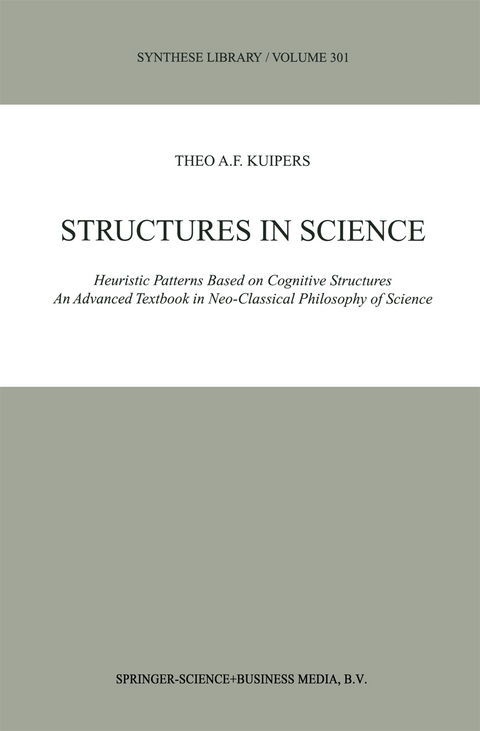
Structures in Science
Springer (Verlag)
978-90-481-5749-5 (ISBN)
Professor Theo Kuipers is the author of From Instrumentalism to Constructive Realism (Synthese Library 287, 2000). He is the leader of the Groningen Research Group `Cognitive Structures in Knowledge and Knowledge Development', which gained the highest possible scores in two successive assessments of Dutch philosophical research by international committees.
I Units of Scientific Knowledge and Knowledge Acquisition; Introduction.- 1 Research Programs and Research Strategies.- 2 Observational Laws and Proper Theories.- II Patterns of Explanation and Description; Introduction.- 3 Explanation and Reduction of Laws.- 4 Explanation and Description by Specification.- III Structures in Interlevel and Interfield Research; Introduction.- 5 Reduction and Correlation of Concepts.- 6 Levels, Styles, and Mind-Body Research.- IV Confirmation and Empirical Progress; Introduction.- 7 Testing and Further Separate Evaluation of Theories.- 8 Empirical Progress and Pseudoscience.- V Truth, Product, and Concept Approximation; Introduction.- 9 Progress in Nomological, Explicative and Design.- 10 Design Research Programs.- VI Capita Selecta; Introduction.- 11 Computational Philosophy of Science.- 12 The Structuralist Approach to Theories.- 13 ‘Default-Norms’ in Research Ethics.- Suggestions for Further Reading.- Exercises.- Notes.- References.- Index of Names.- Index of Subjects.
| Erscheint lt. Verlag | 7.12.2010 |
|---|---|
| Reihe/Serie | Synthese Library ; 301 |
| Zusatzinfo | XVI, 414 p. |
| Verlagsort | Dordrecht |
| Sprache | englisch |
| Maße | 160 x 240 mm |
| Themenwelt | Geisteswissenschaften ► Philosophie ► Allgemeines / Lexika |
| Geisteswissenschaften ► Philosophie ► Logik | |
| Informatik ► Theorie / Studium ► Künstliche Intelligenz / Robotik | |
| Naturwissenschaften | |
| Sozialwissenschaften | |
| ISBN-10 | 90-481-5749-8 / 9048157498 |
| ISBN-13 | 978-90-481-5749-5 / 9789048157495 |
| Zustand | Neuware |
| Informationen gemäß Produktsicherheitsverordnung (GPSR) | |
| Haben Sie eine Frage zum Produkt? |
aus dem Bereich


